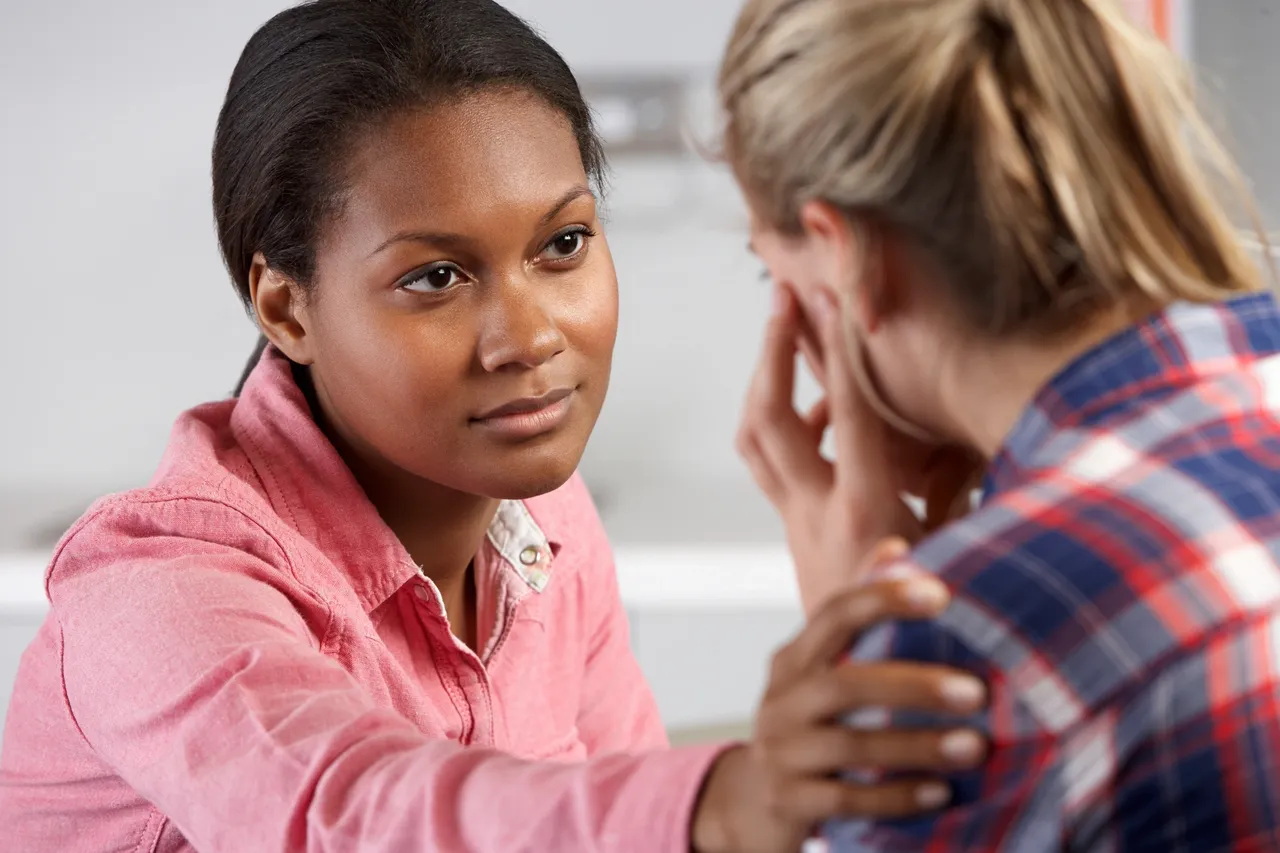What is Residential Mental Health Intake and Orientation Process Like?
Walking through the doors on that first day can feel overwhelming—for both you and your teen. The intake and orientation process is designed to ease those nerves and help everyone feel grounded from the moment you arrive.
The Intake Process
The residential mental health treatment intake process typically begins with paperwork. Yes, there are consent forms, treatment policies, and medical history documents to complete. This isn’t just bureaucracy—it’s about ensuring your teen receives safe, personalized adolescent mental health care that respects your family’s values and concerns.
Guided Tour of the Facility
After the administrative details, your teen will receive a guided tour of the facility. This isn’t a rushed walkthrough. Staff members take time to show where therapy sessions happen, where meals are shared, and where your teen will sleep. Seeing these spaces helps transform an unfamiliar place into somewhere that might actually feel manageable.
Meeting the Support Network
The orientation includes introductions to the people who will become your teen’s support network:
- Nurses who monitor health and wellness
- Case managers who coordinate care
- Clinical directors overseeing treatment quality
- Therapists providing individual support
- Psychiatrists managing medication needs
- Specialists addressing specific challenges
These aren’t just names on a chart. Each person plays a vital role in creating a welcoming and safe space where your teen can begin to heal. The goal is simple: help your teen feel seen, heard, and supported from day one.
Initial Assessments and Personalized Treatment Planning

Once your teen settles into their new surroundings, the clinical team begins a thorough evaluation process. These mental health assessments go beyond surface-level questions—they’re designed to understand your child’s unique story, challenges, and strengths. A psychiatrist or psychologist will conduct comprehensive psychological evaluations, while medical professionals assess physical health, medication needs, and any co-occurring conditions that might affect treatment.
Think of these assessments as the foundation for everything that follows. They reveal patterns you might not have noticed, uncover underlying issues, and identify specific adolescent therapy needs that require attention. Your teen might meet with multiple specialists during these first few days—each bringing their expertise to build a complete picture.
The beauty of this process lies in what happens next: a personalized treatment plan crafted specifically for your child. This isn’t a one-size-fits-all approach. A multi-disciplinary care team—including therapists, psychiatrists, nurses, case managers, and specialists—collaborates to design a roadmap that addresses your teen’s emotional, behavioral, and physical health. They consider everything from trauma history to learning styles, ensuring every intervention serves your child’s healing journey.
Introduction to Therapy Sessions in Residential Programs
Once your teen settles into their new environment, therapy sessions become the heart of their healing journey. Within the first few days, they’ll begin group therapy sessions where they’ll connect with peers facing similar challenges. These sessions create a powerful sense of belonging—your teen realizes they’re not alone, and that connection often becomes a turning point in their willingness to open up and engage.
Individual therapy starts early too, typically within the first 48-72 hours. Your teen will meet with their assigned therapist or psychiatrist for one-on-one sessions tailored specifically to their needs, struggles, and goals. This personalized attention allows them to explore deeper emotions in a private, judgment-free space.
The how therapy sessions work in residential programs differs from outpatient care—the frequency is much higher, often daily or multiple times per week. This intensive approach means your teen isn’t just talking about their feelings once a week; they’re actively working through challenges, learning coping skills, and practicing new behaviors in real-time.
If you’re seeking therapy for autism near you, it’s important to understand that the combination of group and individual therapy for teens creates a comprehensive support system that addresses both personal healing and social connection. In a residential setting, these therapies are designed to help your child reach his or her full potential through evidence-based treatments.
Daily Schedule and Routine Orientation in Residential Care
One of the first things your teen will experience is learning the daily schedule in residential mental health care—a thoughtfully designed framework that brings predictability to each day. This routine in inpatient treatment isn’t about rigidity; it’s about creating a rhythm that helps teens feel grounded when everything else feels uncertain.
During orientation, staff will walk your teen through what a typical day looks like:
- Morning wellness checks and medication management
- Scheduled therapy sessions (both individual and group)
- Educational time to keep up with schoolwork
- Therapeutic activities like art therapy or mindfulness practices
- Practical life skills including meal preparation, gardening, or light housekeeping tasks
These structured activities serve a dual purpose. While therapy addresses emotional healing, activities like tending a garden or organizing shared spaces teach responsibility and self-care in tangible ways. The daily schedule residential care provides becomes an anchor—something your teen can count on when their internal world feels chaotic. This predictability doesn’t just fill time; it actively rebuilds a sense of safety and normalcy that many teens have lost along their mental health journey.
Therapeutic Activities Beyond Traditional Therapy in Residential Programs
Your teen’s days will include much more than sitting in therapy sessions. Therapeutic activities woven throughout the week help teens practice what they’re learning in real-world settings, building confidence and connection along the way.
Group Processing Sessions
Group processing sessions create space for teens to share experiences, practice active listening, and develop emotional regulation skills alongside peers who truly understand what they’re going through. These sessions teach communication techniques that translate directly into healthier relationships outside treatment.
Social Outings
Social outings—whether visiting a local park, exploring a museum, or participating in community involvement activities—serve as experiential therapy opportunities. These carefully supervised excursions help teens rebuild autonomy, practice decision-making, and remember that joy and normalcy exist beyond their struggles.
Life Skills Development
Practical tasks like preparing meals together, organizing shared spaces, or contributing to group projects support life skills development while fostering responsibility and peer interaction. Your teen might help plan a weekend breakfast or collaborate on a creative project, learning that their contributions matter and that working with others can feel rewarding rather than overwhelming.
Coordination of Comprehensive Healthcare Services in Residential Programs
Your teen’s mental health is closely connected to their physical health, and quality residential programs understand this. In the first week, you’ll see how integrated healthcare services are incorporated into your teen’s treatment plan, creating a holistic approach that addresses their overall well-being.
Primary Healthcare Coordination
Build Bright Care Group coordinates primary healthcare with psychological treatment, ensuring that your teen doesn’t miss any routine medical appointments or urgent health needs while focusing on mental wellness.
This includes:
- Dental care to address any oral health concerns that may have been neglected
- Vision care for eye exams and prescription updates
- Chiropractic care in residential programs to support physical comfort and body awareness
- Regular medical check-ups and medication management
Impact on Emotional Regulation and Treatment Progress
This comprehensive approach recognizes that physical discomfort, untreated medical conditions, or chronic pain can significantly affect emotional regulation and treatment progress. When your teen feels physically well and cared for, they’re better equipped to engage fully in their therapeutic work.
The care team communicates across disciplines, ensuring that every aspect of your teen’s health supports their recovery journey.
Adjusting to Inpatient Mental Health Treatment Environment: A Guide for Teens and Their Families
The first week brings natural feelings of uncertainty as your teen settles into residential mental health treatment. This adjustment to inpatient care happens gradually, with staff members intentionally creating touchpoints throughout each day to help teens feel seen and supported. Think of it like moving into a new home where everyone is genuinely invested in your child’s comfort and progress.
Creating comfort in a safe environment mental health facility involves:
- Staff members checking in regularly, not just during scheduled sessions
- Designated quiet spaces where teens can decompress when feeling overwhelmed
- Personalized room setups that allow for familiar items from home
- Open-door policies with counselors available for spontaneous conversations
Peer support benefits become evident quickly. Your teen will meet others who truly understand what they’re going through—something that can feel impossible to find back home. These connections aren’t forced; they develop naturally through shared meals, group activities, and simply living alongside others on similar healing journeys. Research consistently shows that adjusting to inpatient mental health treatment becomes easier when teens realize they’re not alone in their struggles. The importance of peer support and the gradual process of adjusting to inpatient mental health treatment cannot be overstated, as these elements play a crucial role in the overall success of the treatment journey.
Specialized Care for Specific Conditions (e.g., Anorexia Nervosa) During First Week of Residential Treatment
When your teen arrives at a residential mental health treatment facility with a condition like anorexia nervosa, the first week involves specialized assessments that go beyond standard mental health evaluations. You’ll notice the care team takes a comprehensive approach right from day one.
1. Detailed Nutritional Assessments
Detailed nutritional assessments form the cornerstone of eating disorder treatment. During admission, dietitians work closely with your teen to understand their current eating patterns, nutritional deficiencies, and relationship with food. These assessments aren’t just about numbers on a scale—they explore food preferences, cultural considerations, and any physical complications that may have developed. The team measures vital signs, reviews lab work, and creates a baseline understanding of your teen’s physical health alongside their mental well-being.
2. Collaborative Meal Planning Process
The collaborative meal planning process begins almost immediately. Your teen won’t face this alone. Dietitians sit down with them to develop meal plans that feel manageable rather than overwhelming. These plans respect your teen’s voice while ensuring proper nutrition for recovery. Staff members provide support during mealtimes, creating a judgment-free zone where your teen can practice new behaviors and challenge distorted thoughts about food.
3. Individual Counseling and Group Therapy
Individual counseling and group therapy work hand-in-hand with nutritional support. Therapists help your teen identify triggers, develop coping strategies, and build skills for relapse prevention. Group sessions connect them with peers who truly understand the struggle, reducing the isolation that often accompanies eating disorders. These therapeutic components integrate seamlessly with dietitian support in residential programs, addressing both the psychological and physical aspects of recovery.
Building Foundations for Mental Health Recovery Programs at Build Bright Care Group
At Build Bright Care Group, we understand that specialized conditions require specialized care. Our adolescent residential mental health treatment in California combines evidence-based practices with the warmth and comfort of a home-like environment. We’ve designed our teen residential program to address the unique needs of adolescents ages 12 through 17, recognizing that recovery looks different for every young person who walks through our doors.
If you’re considering residential mental health treatment for your teen, we’re here to answer your questions with compassion and without judgment. Reach out to Build Bright Care Group today to learn more about our comprehensive approach to healing and how we can support your family’s journey toward sustainable well-being.
Our programs also cater to other mental health issues such as anxiety or suicidal thoughts, providing a safe environment where teens can begin their journey towards recovery.
FAQs (Frequently Asked Questions)
What does the intake and orientation process involve at Build Bright Care Group’s residential mental health treatment for teens?
The intake and orientation process includes completing necessary paperwork such as consent forms and treatment policies, a facility tour to familiarize patients with the environment, and meetings with key staff members like nurses, case managers, therapists, psychiatrists, and specialists. This process emphasizes creating a welcoming and safe space tailored for adolescents.
How are initial assessments conducted to create personalized treatment plans in adolescent residential mental health care?
Initial assessments involve comprehensive psychological and medical evaluations to determine each teen’s unique therapy needs. These assessments guide the development of tailored treatment plans crafted by multi-disciplinary care teams, ensuring individualized and effective mental health support.
What types of therapy sessions are offered in residential programs for teens at Build Bright Care Group?
Therapy sessions include both group therapy, which fosters peer support and social skills development, and individual therapy with assigned therapists or psychiatrists for personalized attention. These sessions are integral parts of the residential program aimed at promoting recovery within a supportive environment.
How is the daily schedule structured in residential mental health care to support adolescent recovery?
The daily schedule balances therapeutic activities with practical life skills such as gardening or housekeeping. This structured routine promotes recovery, stability, and a sense of normalcy and safety essential for teens undergoing inpatient treatment.
What therapeutic activities beyond traditional therapy are incorporated into residential programs?
Beyond traditional therapy, residents participate in group processing sessions that enhance communication and emotional regulation skills, social outings that promote experiential therapy and autonomy building, as well as practical tasks that encourage responsibility and peer interaction.
How does Build Bright Care Group coordinate comprehensive healthcare services within adolescent residential mental health programs?
The program integrates primary healthcare services—including dental care, vision care, and chiropractic care—within the overall mental health treatment plan. This holistic approach addresses overall wellness alongside psychological recovery to support sustainable well-being for teens.












